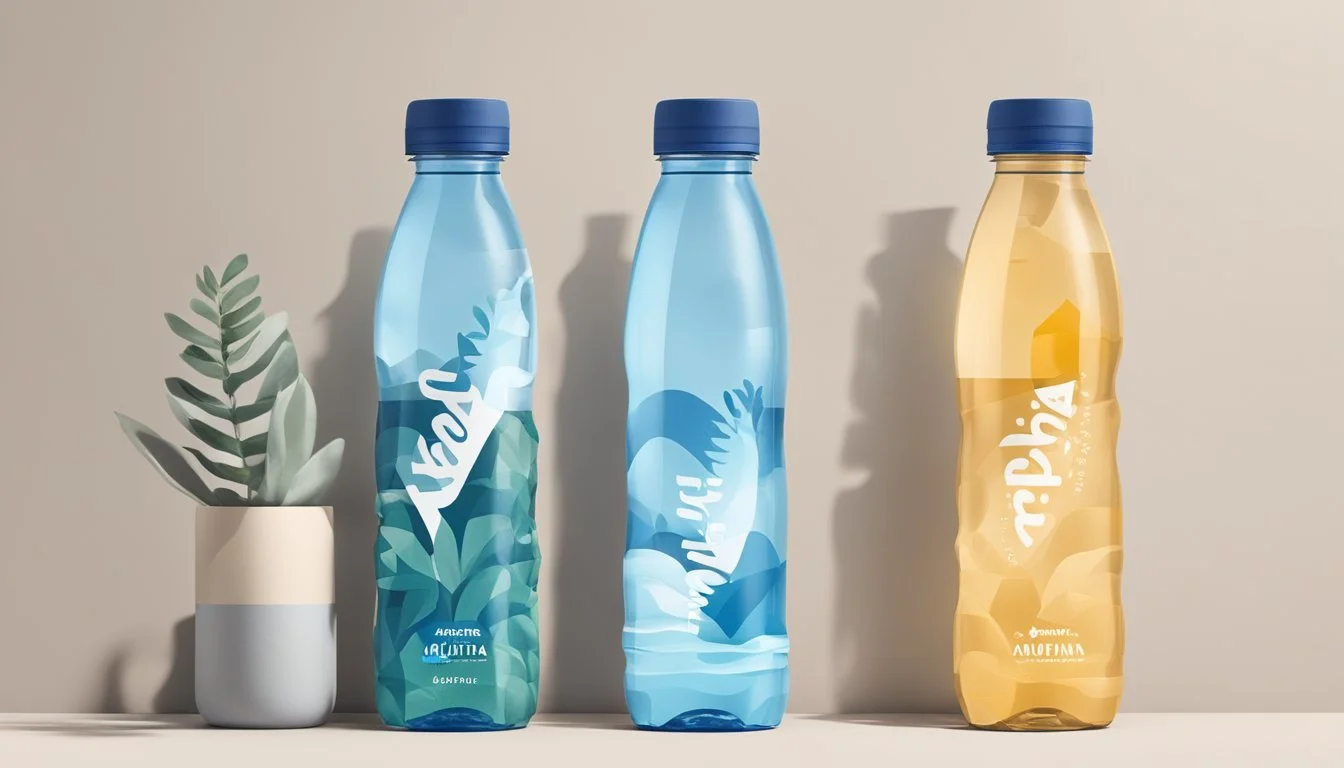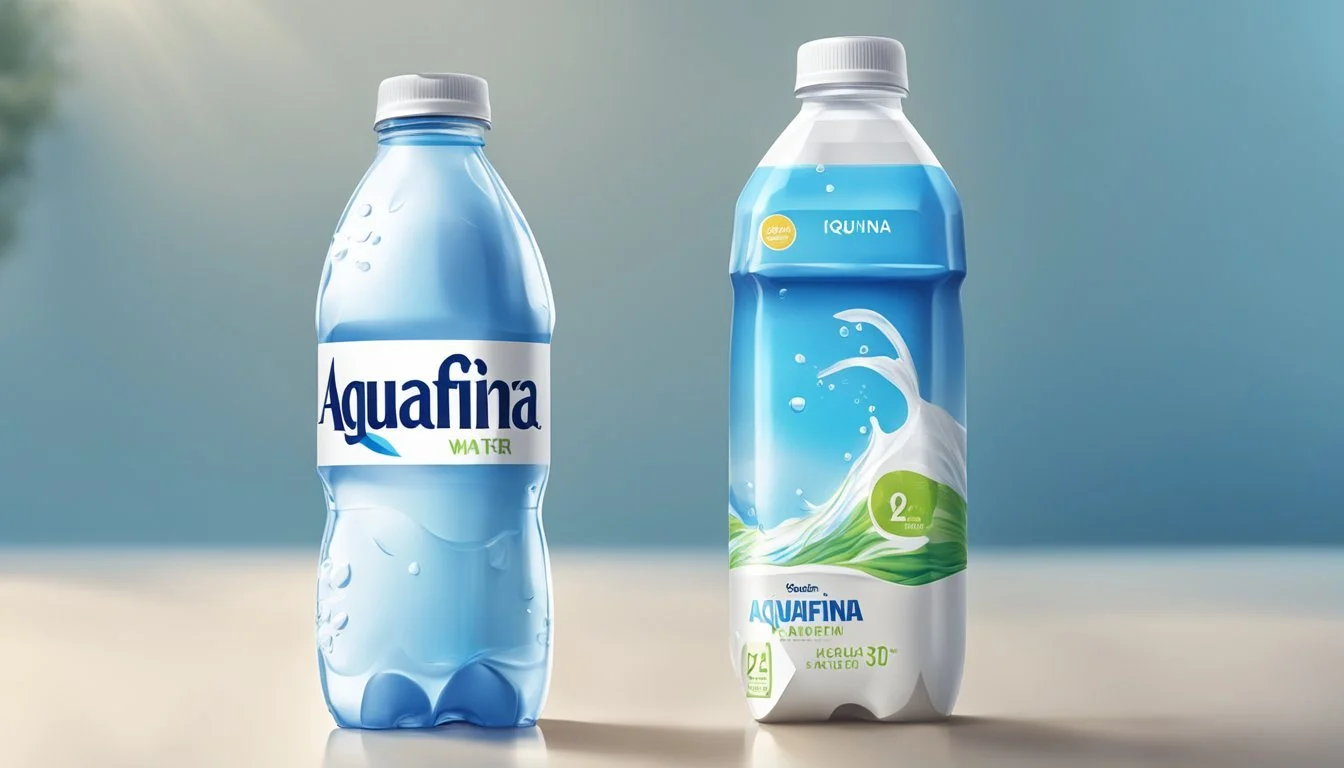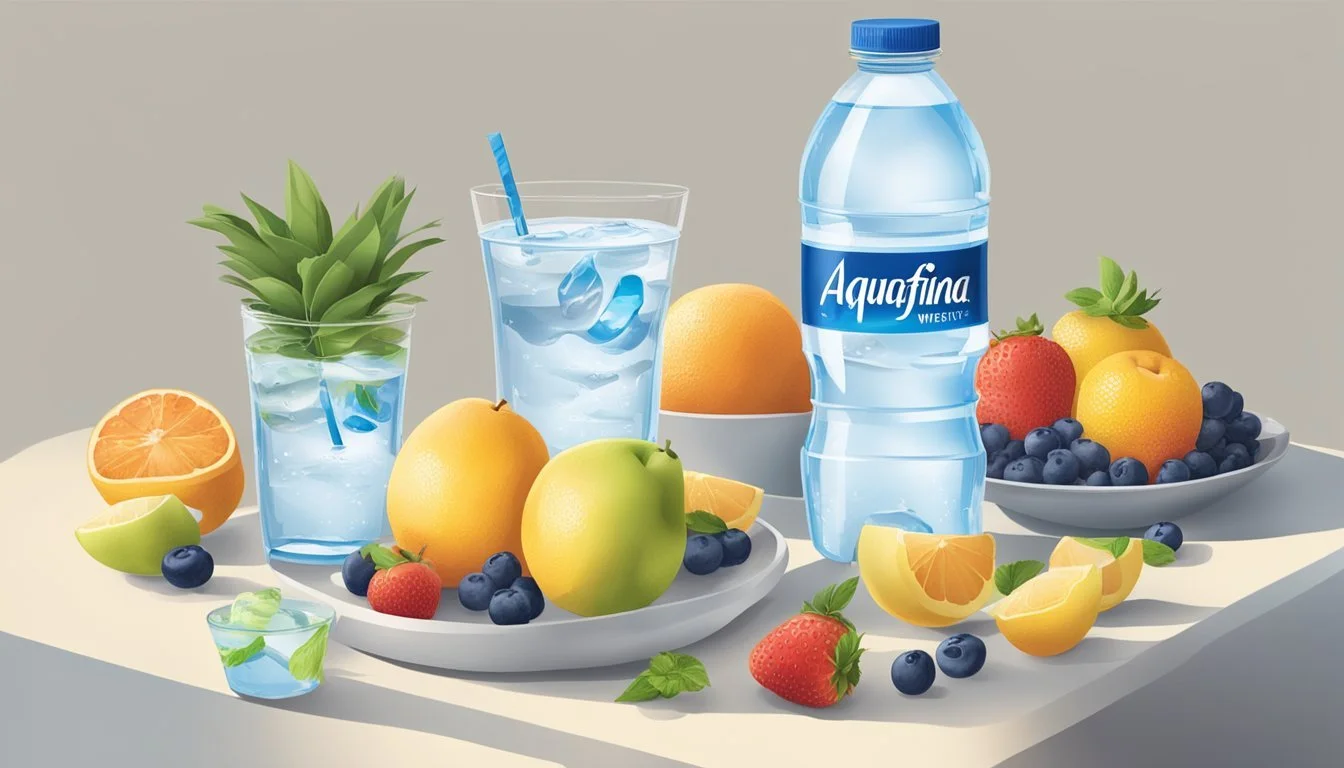Aquafina vs. Boxed Water
Comparing Bottled Water Brands for Quality and Taste
In the realm of bottled water, consumers are faced with a plethora of choices, each claiming purity, taste, and environmental benefits. Two prominent options that stand out are Aquafina, a well-known brand in the bottled water market, and Boxed Water, which has gained attention for its eco-friendly packaging. While Aquafina is purified through a rigorous seven-step process, ensuring clean, crisp-tasting water, Boxed Water presents itself as a sustainable alternative, offering a product that is 92% plant-based and 100% recyclable.
Deciding which bottled water is "better" depends on a variety of factors, like taste preference, commitment to environmental sustainability, and accessibility. Aquafina, produced by PepsiCo, is distributed widely and is known for its consistent taste. On the other hand, Boxed Water, with its distinct packaging, may appeal to those seeking to reduce their environmental footprint due to its biodegradable container and promise of planting trees for every social media post with their hashtag.
Evaluating Aquafina and Boxed Water involves not only their impact on individual health but also on global ecosystems. Bottled water is often scrutinized for the resources required to produce the bottles and the waste they create. Therefore, consumers are increasingly factoring in the environmental policies and practices of bottled water companies when making their purchasing decisions. Both Aquafina and Boxed Water have their merits and drawbacks, and the choice between them can reflect one's values as much as the desire for hydration.
Understanding Bottled Water
Consumer choices in bottled water are vast, with variations in source, purification, and taste. The following sections provide insight into the types of bottled water, sources and origins, as well as bottling processes and safety regulations, which affect the overall health impact of the water.
Types of Bottled Water
Bottled water generally falls into several categories based on its source and treatment. Spring water comes from a natural spring and must be collected at the spring or through a borehole tapping the underground formation feeding the spring. Mineral water also comes from a protected underground source and contains various minerals and trace elements. It must retain its mineral composition at source without further treatment. Purified water is commonly sourced from tap water or ground water, which undergoes purification processes such as reverse osmosis, ultraviolet light treatment, or ozone treatment to remove contaminants.
Water Source and Origin
Water's source significantly affects its taste and mineral content. Bottles labeled natural spring water typically derive from protected, underground springs that may flow through layers of volcanic rock or other mineral-rich formations. The earth itself naturally filters this water, which can imbue it with a distinctive flavor and electrolytes crucial for health.
Bottling Process
Bottled water companies use different bottling processes that can impact safety and quality. Purification methods like reverse osmosis or filtration through a carbon filter are common. Some brands utilize ultraviolet light treatment to ensure sterility, and certain premium waters pass through a barrier that can add or remove minerals and electrolytes.
Regulations and Safety
In the United States, the Environmental Protection Agency (EPA) establishes strict guidelines for tap water, while the Food and Drug Administration (FDA) regulates bottled water. Bottled water vendors are required to monitor for contaminants such as lead, heavy metals, and PFAS chemicals to ensure health and safety. Regular testing validates compliance with federal standards, aiming to safeguard public health.
Investigating Aquafina and Boxed Water
When it comes to choosing between Aquafina and Boxed Water, consumers are faced with considering the origins, purification methods, and environmental impacts. This section provides a focused look at both brands and how their products compare.
Aquafina Brand Overview
Aquafina is a brand of purified bottled water produced by PepsiCo. It sources its water from public water supplies, which then undergoes a proprietary purification process. This process includes reverse osmosis, UV light, and charcoal filtering, resulting in water that Aquafina labels as pure water, perfected.
Boxed Water Brand Overview
Boxed Water is a brand that presents itself as an environmentally friendly alternative to traditional bottled water. Its product comes in cartons made from paper that is sourced from sustainably managed forests. The company emphasizes that its packaging is recyclable and that it is committed to reducing carbon footprint. Boxed Water also supports reforestation and water relief through various partnerships.
Comparison of Purification Methods
Aquafina:
Starts with municipal water
Utilizes a 7-step HydRO-7™ purification system
Reverse osmosis
Ozone sterilization
Other proprietary filtering techniques
Boxed Water:
Sources water based on regional availability
Emphasizes the use of multi-stage filtration
The specific methods of purification are not as widely marketed as its packaging solutions and environmental ethos.
Both Aquafina and Boxed Water offer purified water, but they have distinct methodologies that reflect their brand ethos—Aquafina focusing on purification precision, and Boxed Water stressing environmental consciousness.
Health, Hydration, and Taste Factors
When assessing bottled water brands like Aquafina and Boxed Water, one should consider the implications for health, the hydration quality provided, and the taste profile, each of which may influence consumer choice.
Hydration and Health Benefits
Hydration is crucial for maintaining health, and both Aquafina and Boxed Water cater to this need. Aquafina, a purified, non-mineralized water, offers hydration with a clean taste, having undergone a rigorous filtration process. Boxed Water, on the other hand, emphasizes its eco-friendliness and health benefits, claiming to maintain a high pH level, which some believe can contribute to better hydration and a more alkaline diet's benefits.
Taste Profiles of Bottled Waters
The taste of bottled water can be influenced by its mineral content and the presence of electrolytes. Aquafina, which markets itself as having a pure, crisp taste due to its purification process, lacks significant mineral content. Conversely, many water sommeliers who specialize in the nuances of water taste may align Boxed Water with a more complex profile, potentially due to its source or treatment which can include a blend of naturally occurring minerals and electrolytes.
Water and Electrolyte Balance
The balance of electrolytes in water can affect not only the health benefits but also hydration efficiency and taste. Electrolytes like sodium, potassium, calcium, and magnesium play pivotal roles in the body's hydration levels. Aquafina's demineralized formulation means it has negligible electrolyte content. Meanwhile, Boxed Water does not specifically emphasize its electrolyte content, but as with most non-distilled waters, it likely contains trace amounts of minerals and electrolytes which can support the body's hydration processes.
Environmental and Ethical Considerations
When comparing Aquafina and Boxed Water, one must consider the sustainability of packaging, the environmental impact of production, and the corporate responsibility of the brands.
Sustainable Packaging Choices
Aquafina, produced by PepsiCo, typically uses PET plastic bottles, which are lightweight and recyclable. However, the recycling rate for plastic is relatively low, which often results in environmental pollution. In contrast, Boxed Water packages its water in cartons, primarily made from paper, a renewable resource, giving it a potentially lower ecological footprint. The cartons are also recyclable where facilities exist.
Glass bottles are another alternative, often considered more environmentally friendly due to their reusability and recyclability, but they are heavier and more energy-intensive to transport.
Industry Impact on the Earth
The bottled water industry utilizes significant natural resources, including water and fossil fuels for plastic production. The manufacturing process, transportation, and disposal of bottles contribute to carbon emissions and environmental degradation. While recycling can mitigate these effects, reduction at the source is preferable.
Nestlé and Coca-Cola have faced criticism for their water sourcing practices, which can strain local ecosystems and communities.
Water Brands and Corporate Responsibility
Both PepsiCo and the producers of Boxed Water engage in corporate initiatives aimed at being more environmentally friendly. PepsiCo has made commitments to increase its use of recycled materials and reduce emissions.
The Boxed Water brand emphasizes its use of renewable materials and has a reforestation partnership program.
When choosing a reusable bottle, one opts for a more sustainable method of hydration that requires fewer resources over time, thus having a lower impact on the earth.
Consumer Choices and Trends
Consumer trends in bottled water choices are influenced by brand popularity, the advent of eco-friendly alternatives, and the influence of grocery stores and retailers stocking these products.
Popular Bottled Water Brands
Aquafina and Dasani are among the heavy-hitters in the bottled water industry, commonly found in grocery stores and known for their purified drinking water. However, brands like Evian and Fiji have also garnered a significant consumer base, touting their natural spring sources and mineral content. Nestle Pure Life is noted for its global presence and accessibility, while Smartwater has differentiated itself with the addition of electrolytes.
Alternatives to Traditional Bottled Water
Recently, there has been a move towards more environmentally friendly options such as Boxed Water, with its high renewable content packaging. Reusable bottles have surged in popularity as well, with many consumers opting for water they can refill from tap or filtered sources. Additionally, glass bottles are also gaining traction as a reusable and recyclable choice.
The Role of Grocery Stores and Retailers
Grocery stores and retailers play a pivotal role in shaping consumer choices. They provide visibility and accessibility to various brands of bottled waters, including premium options such as Voss and Core Hydration. These establishments decide the range and positioning of bottled products, from single-use plastic bottles to innovative boxed water formats, thereby influencing consumer purchases and the prominence of particular brands.
Final Verdict: Aquafina vs. Boxed Water
In choosing between Aquafina and Boxed Water, consumers weigh several factors including taste, hydration efficiency, environmental impact, and packaging.
Comparative Analysis
Taste: Aquafina, a PepsiCo product, is purified drinking water that is known for its clean and crisp taste. Boxed Water, on the other hand, focuses on a taste that's more aligned with environmentally conscious production methods.
Hydration: Both brands provide adequate hydration, but Aquafina's purification process includes reverse osmosis and other filtration methods designed to remove substances. Boxed Water boasts of a mineral balance that supports effective hydration.
Environmental Concerns: Aquafina's plastic bottles are widely recyclable; however, Boxed Water’s cartons are more sustainable, made of paper from well-managed forests, and are completely recyclable. This gives Boxed Water an edge for environmentally conscious consumers.
Packaging:
Aquafina: Plastic bottles, various sizes
Boxed Water: Paper-based cartons, eco-friendly design
Recommendations and Bottom Line
For those prioritizing taste and perhaps brand reputation, Aquafina may be the preferred choice. It’s available widely and the purification process it undergoes is thorough. Boxed Water advocates for an environmentally friendly alternative with packaging that reduces plastic use.
The bottom line is that both brands serve the basic need for hydration and have unique selling points. Consumers interested in a lower environmental impact might lean towards Boxed Water, as it presents a more sustainable option. For additional inquiries, customers should contact the respective brand's customer service for more detailed information.




